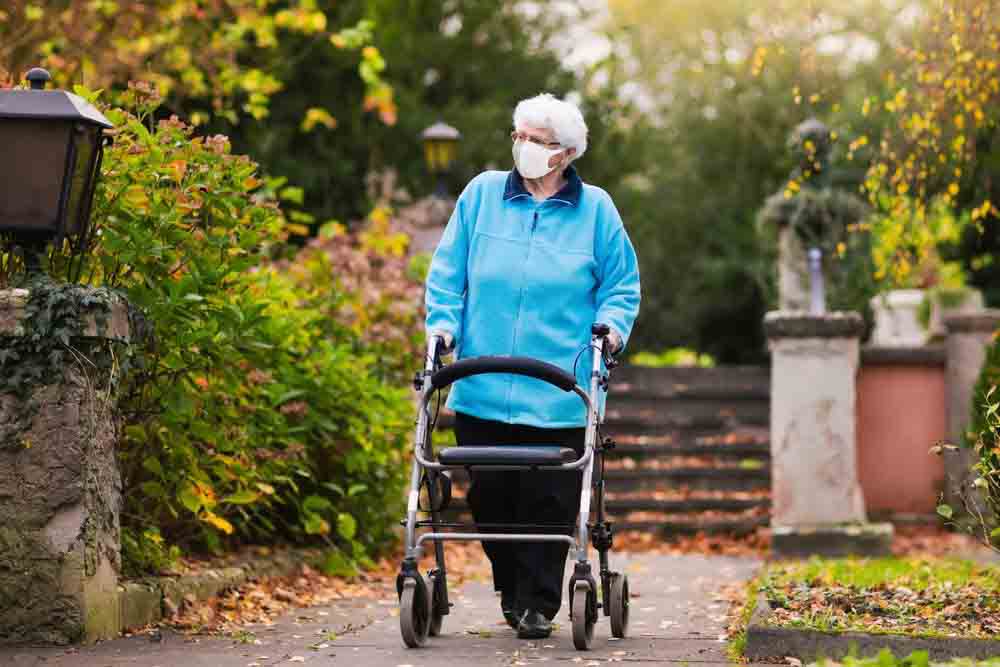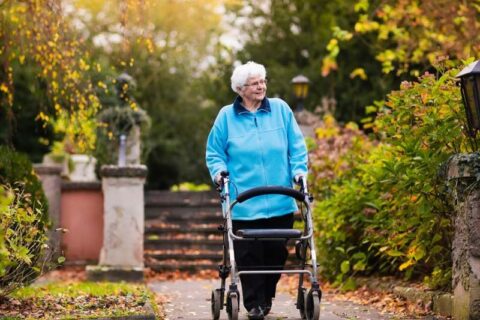One Senior Wanders From a Nursing Home Each Day, Says Washington Post Investigation

Elopement in a nursing home setting occurs when a senior resident is able to leave the nursing home premises unsupervised. While such an incident might seem unthinkable and impossible, elopement is likely more dangerous and more common than most expect.
According to a recent investigation by The Washington Post, there were more than 2,000 reported elopements of residents in nursing homes, assisted living centers, and dementia care wards between 2018 and 2023. This rate amounts to a bit more than one case of elopement each day across the country. However, the real number could be much higher because the reporting systems used by the U.S. Centers for Medicare & Medicaid Services (CMS) are notoriously inadequate.
The same Washington Post investigation was able to confirm nearly 100 resident fatalities caused by elopements within the same five-year period. Many of the deaths were caused by prolonged exposure to the elements (like extreme heat or cold), but some were caused by accidental drownings and even animal attacks. Again, it is feared that 100 recorded deaths could be a fraction of the true total because the CMS does not keep its own count of such incidents. Instead, it relies on reports from state-level agencies, which, in turn, rely on self-reports from nursing homes and assisted living centers.
Elopement Risks Disproportionately Affect Seniors With Dementia
The nursing home industry has grown rapidly in only a few years, ballooning to a total industry value estimated to be over $34 billion. One of the fastest-growing populations of residents in nursing homes is dementia patients who require specialized care. In fact, almost 50% of people living in assisted living facilities have dementia or have been diagnosed with a similar cognitive condition.
Common symptoms of dementia are losing track of one’s surroundings and a lack of situational awareness. Both symptoms can make someone likely to wander without direction and without telling anyone before departing. As such, a massive portion of the nation’s nursing home residents are at a high risk of elopement and the dangers that come with it. The Washington Post investigators were able to identify 98 elopement-related deaths suffered by nursing home residents with Alzheimer’s disease since 2018 by comparing nursing home industry reports with public records, including Barbara Doyle of Arkansas.
Barbara Doyle’s Fatal Elopement Case Settles for $2 Million
Barbara Doyle was a 74-year-old Arkansas woman who had been diagnosed with Alzheimer’s disease. She had been a resident of Brookfield Assisted Living and Memory Care in Bella Vista, Arkansas, for only three hours when she was able to wander off the premises unsupervised. An investigation would reveal that a staff member who should have known that Barbara was an elopement risk due to having Alzheimer’s saw her leave the facility, did not attempt to stop her, shut off the alarm that sounded as Barbara left, and went back to work without notifying anyone else. Barbara passed away shortly after due to heat exposure. (Her obituary was posted by the Arkansas Democrat-Gazette and can be read by clicking here.)
The Law Office of Tom Wagstaff Jr. was called by Barbara’s loved ones to handle her wrongful death/elopement lawsuit. It was the work of the attorneys that uncovered many of the details about Barbara’s fatal elopement, including that a staff member had essentially permitted it. The case was settled for a $2-million policy limit agreement without getting into prolonged litigation.
Frustrations With Lacking Oversight & Compassion
For people who have lost elderly loved ones to elopement incidents at a nursing home, they want answers, compassion, and justice. Many are left frustrated with the lack of federal oversight and angered by conflicting information.
When asked about the elopement problem at nursing homes around the country, a spokesperson for the National Center for Assisted Living (NACL) reportedly said that elopements are rare and mostly inconsequential. The statement can feel detached, if not dishonest, to people who have felt the tragic consequences of elopement. With the Washington Post investigators finding that elopements happen about once a day, it also begs the question of how NACL determined that elopements are “rare.”
Elopement Can Be Prevented
It is important to realize that elopement isn’t a sudden problem that can’t be prevented. Rather, it is an issue that should be predictable and stoppable with the proper care and attention from nursing home staff. The Washington Post investigators and other safety groups have concluded that the vast majority of elopement events could be prevented with better nursing home safety protocols and regulations.
In Many Incidents, Elopement Events Are Caused or Allowed to Occur Due to Staff:
- Ignoring perimeter door alarms.
- Skipping bed checks.
- Sleeping while on the clock.
- Falsifying resident health records.
Another significant yet preventable problem is nursing home understaffing. The fewer staff members there are per resident, the more likely a resident will go unsupervised for hours, which is often the starting point of elopement.
How to Bring Elopements to an End
The most important move to stop elopements likely rests on more legislation above the nursing home industry. Better staffing requirements that consider both the number of staff members and the training they receive could drastically reduce the risks of seniors with Alzheimer’s disease from wandering out of nursing homes. However, the industry won’t make those updates on its own. Recently, the Biden Administration has conducted roundtable talks about implementing such staffing requirement upgrades, and major corporations in the nursing home industry were quick to challenge even the idea of it. Some stated that hiring more staff would lead to industry-wide bankruptcy, for example.
While the nation waits to see how and when safety regulations within the nursing home industry are updated to prevent elopements, another unexpected method can be used to send a message to the industry: civil lawsuits. Anyone who has lost a loved one to elopement—or who has suffered in any other way due to nursing home neglect or abuse—should talk to an attorney about legal action that can demand compensation and justice. Oftentimes and unfortunately, corporations and companies start to listen when their bottom lines start to hurt.
Do you need to talk to a nursing home elopement attorney in Kansas, Arkansas, or Missouri? The Law Office of Tom Wagstaff Jr. is always available to talk and listen. We have deliberately focused our law firm’s efforts on difficult nursing home abuse, neglect, and elopement claims and lawsuits. Our efforts have paid off with many recent wins for our clients, including a $3-million settlement for an elopement lawsuit and a $2-million settlement for the family of Barbara Doyle. See how we can help you, too, by calling 816-708-0524 and requesting a free case review.


